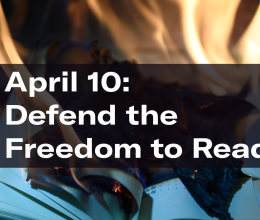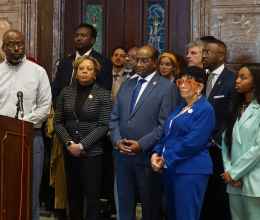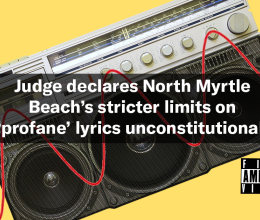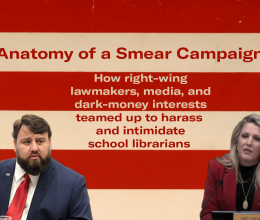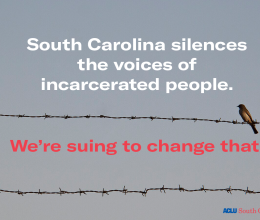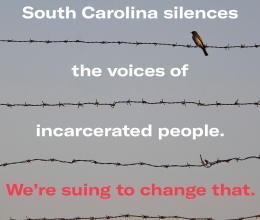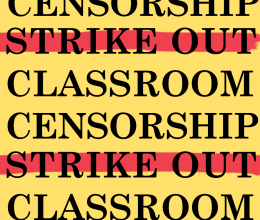
October 30, 2013. Free Times. Columbia. By Eva Moore. City leaders continue to tweak their ideas for cracking down on crime as fears mount about gangs in Five Points and citywide. But a plan to ban suspected gang members from certain parts of the city raises some concerns among civil liberties groups.
Fear of crime in the Midlands is certainly real. An independent poll of 370 city voters conducted Oct. 28 by Crantford Research found 65 percent feel Five Points is not a safe place to be at night. And 75 percent said the city has a gang problem. In fact, the gang problem in the Midlands is getting worse, Richland County Sheriff Leon Lott told Free Times in August. This is despite statistics showing crime in the city steadily dropping over the past several years.
Now, attention has turned to a proposal by Mayor Steve Benjamin to create gang injunctions. According to The State, which first reported the plan, these court orders would ban suspected members of certain gangs from being in designated parts of town, including Five Points.
Essentially, according to the Los Angeles Police Department — which pioneered the practice — a gang injunction is a restraining order against a group.
Gang injunctions have become popular, particularly across California.
But they don’t always sit well with courts. Just a few weeks ago, the Utah Supreme Court threw out a 2012 gang injunction from Ogden, Utah. According to the Deseret News, “Under the injunction, … 315 to 500 members of the [targeted] gang were prohibited from gathering within a 25-square-mile ‘safety zone,’ which blanketed much of Ogden.” The judge found the injunction unconstitutional.
Dramatic anti-gang measures don’t sit well with civil libertarians, either — or even with the conservative Heritage Foundation, which in 2007 released a report that, while endorsing some anti-gang measures, suggested the definition of “gang” in anti-gang legislation is often too broad.
Columbia’s plans could be a concern for the American Civil Liberties Union’s South Carolina Chapter, according to executive director Victoria Middleton — particularly when it comes to tracking young people in crime databases.
“We’re concerned about avoiding the kind of tough-on-crime solutions that just increase recidivism and increase hostility between the police and communities, and harden behavior that leads to a life of crime,” Middleton says.
Interim Police Chief Ruben Santiago said Oct. 25 that he wants to change the way the police use the city’s many surveillance cameras — and that could help enforce the injunctions. Currently, the cameras aren’t monitored actively; they’re only viewed retroactively. But he’d like to hire and train staffers to identify suspicious people and track their movements around Five Points or other camera-ridden areas.
“The idea is to have a live person in a room trained to detect criminal behavior … able to detect crime as it’s happening,” Santiago said.
The ACLU has longstanding concerns about surveillance cameras being used broadly on mostly law-abiding people — especially without adequate laws in place to make sure they’re being used ethically. “In a broader sense, technology — as we’re seeing in Washington — always outstrips the regulations,” Middleton says.
Meanwhile, city leaders are further refining their crime plans.
Santiago says city workers have been trimming branches around streetlights, and he’d like to put up signs saying “Cameras In Use” so people know they’re being recorded.
But Santiago has scrapped a proposal he favored as recently as last week: shutting down some major Five Points streets to vehicle traffic on busy nights. He doesn’t have the staff to enforce it, he says, without possibly shifting crime outward into ill-lit areas and neighborhoods.
The Five Points Association was happy with that news. In a statement, executive director Amy Beth Franks wrote, “We are pleased with the direction in which action is being taken and we appreciate that Interim Chief Santiago and city staff are in agreement with our reasoning behind not supporting any type of street closure or 2 a.m. bar closings.”

